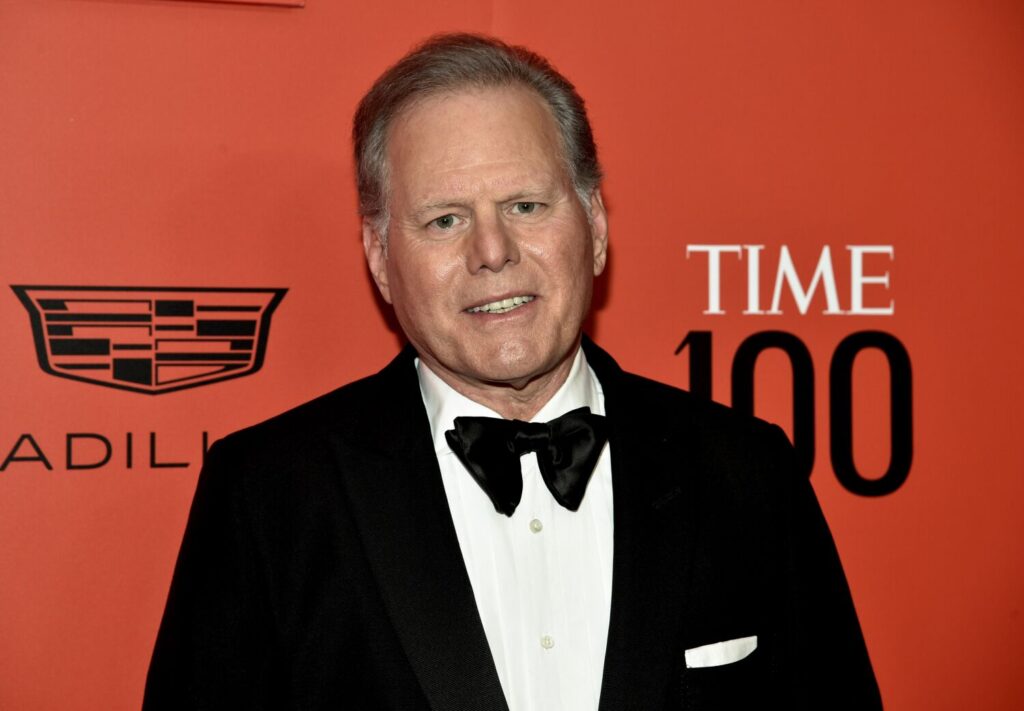Within hours after it was published this week, a GQ article that took critical aim at David Zaslav, chief executive of Warner Bros. Discovery, had vanished.
The men’s magazine removed the 1,400-word piece from its website on Monday without an explanation to its readers, a move uncommon in news media. Several days later, competing media outlets caught wind of its disappearance and began to unravel the unusual editorial step.
GQ’s decision to delete the article reportedly came only after the magazine received pushback from Zaslav, according to the Washington Post. A spokesperson for the chief executive had complained about the piece after it was published, and the story underwent extensive edits later that afternoon before it was deleted.
Archived versions of the original and edited versions of the article had remained online and were widely circulated. The edited version, however, is no longer available. Both versions were reviewed by The Times.
The article was written by freelance film critic Jason Bailey and blasted Zaslav’s performance as head of Warner Bros. Discovery, referring to him as “perhaps the most hated man in Hollywood.”
Bailey traced Zaslav’s previous year at the helm of the controversial WarnerMedia and Discovery merger. The piece focused on his unpopular decision to not release the DC film “Batgirl,” as well as his axing films and shows from streaming services amid the HBO Max and Discovery+ merger and gutting the core of Turner Classic Movies, including the network’s longtime leaders. While comparing Zaslav to Logan Roy of “Succession” or Richard Gere’s greedy businessman character in “Pretty Woman,” Bailey described the CEO as someone squeezing his assets for profit with “outright hostility to cinema and its rich history.”
“He’s out here carrying on like a mogul,” the original article’s closing line read, “but based on his performance to date, he’s only good at breaking things.”
The edited version had watered down the article’s sharpest critiques, such as the “Succession” and “Pretty Woman” references. It also appeared more dismissive of outside criticism Zaslav has received, describing it as “personal.”
Bailey told the Washington Post that he requested to have his byline removed from the article after the edits. A GQ editor said the publication wouldn’t have an author-less article on its website and deleted it by Monday afternoon, Bailey added.
“I wrote what I felt was the story I was hired to write,” Bailey said to the Post. “When I was asked to rewrite it after publication, I declined. The rewrite that was done was not to my satisfaction, so I asked to have my name removed and was told that the option there was to pull the article entirely, and I was fine with that.”
GQ , claimed that the article had been published before it was properly edited, the publication said in a statement sent to The Times.
“After a revision was published, the writer of the piece asked to have their byline removed, at which point GQ decided to unpublish the piece in question,” the statement read. “GQ regrets the editorial error that led to a story being published before it was ready.”
Warner Bros. Discovery confirmed to The Times that the article’s removal took place after it had reached out to GQ, complaining that Bailey did not reach out to the company for comment before publishing the story or for fact-checking, which it called “a standard practice.”
In a statement, a spokesperson for Warner Bros. Discovery added that it had “contacted the outlet and asked that numerous inaccuracies be corrected.”
“In the process of doing so, the editors ultimately decided to pull the piece,” the statement read.
While Bailey told the Post that he didn’t ask the company for comment, he defended his article against the claim of having “numerous inaccuracies.”
Representatives for GQ did not immediately respond to The Times’ request for comment on Thursday.
GQ’s decision to pull the Zaslav article was met with wide criticism online and across the news media landscape, with some wondering if the magazine was playing favorites, bending toward the entertainment executive’s desires. Many came to Bailey’s defense.
“I worked at GQ for seven years and love it to death, so it breaks my heart to see them lie down for the worst person in media,” columnist Drew Magary wrote in a tweet, sharing his own article aimed at GQ’s decision on SFGate, in which he accuses the publication of abandoning “its journalistic principles just to please Zaslav.”
Times film critic Justin Chang invited readers to read Bailey’s original article, which he called “terrifically sharp” and “incisive,” linking to the archived version in a tweet. He wrote the piece “deserved far better than the spineless treatment it got from GQ.”
Patrick Redford, a staff writer at sports and culture news website Defector, wrote in a column that GQ had “done their readers a gross disservice” and characterized the move as “crimes against journalism, and against this particular journalist.” Redford added that Bailey didn’t need to reach out to Warner Bros. Discovery for comment since he was expressing an opinion on “already-known facts,” which “does not hinge on any novel revelations that would require Zaslav to frame with a rebuttal.”
Zaslav’s public image has only worsened since the start of the Writers Guild of America strike, which recently entered its third month. He is seen by critics as a symbol of excessive Hollywood paychecks. The mogul recently was greeted with boos and jeers while delivering a commencement address at Boston University, with some people chanting, “pay your writers.”
A recent Times analysis of entertainment executive pay data showed Zaslav’s compensation was valued at nearly half a billion dollars over the five-year span between 2018 and 2022 — the most of any major entertainment executive reviewed.
When WarnerMedia and Discovery merged in 2021, Zaslav received a compensation package worth nearly $247 million, which was mostly from stock options related to the merger.
Times staff writers Brian Contreras, Wendy Lee and Thomas Suh Lauder contributed to this report.

